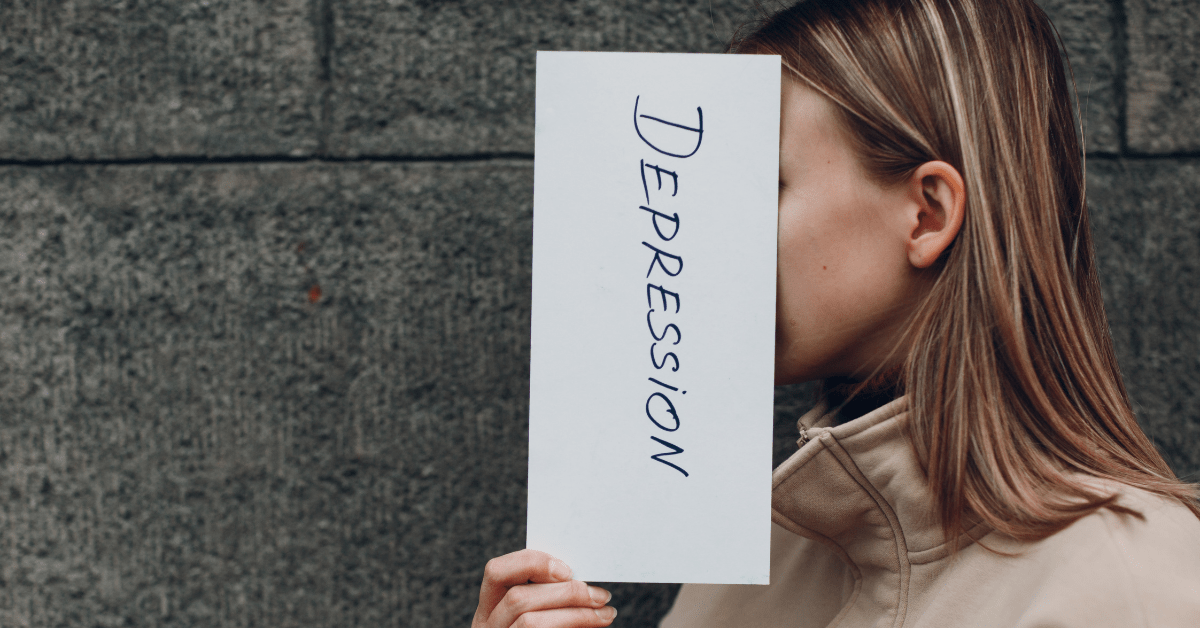What is depression?
Depression can make a person feel hopeless, stuck, and overwhelmed. Traumatic and stressful life events often contribute to depressive symptoms such as negative thoughts, emptiness or sad feelings, low sense of self-worth, and difficulty finding pleasure in life. Depression is a common mood disorder with symptoms that can manifest in different ways and varying levels of severity. While there are several types of depression such as major depression, persistent depressive disorder, bipolar disorder, post-partum depression, all depressive conditions affect the body, mind, and emotions.
While the origins of depression vary, people suffering from it tend to hold negative beliefs about themselves, the world, and the future (Beck, 1979). One way that negative beliefs develop is from experiencing stressful and traumatic events that remain unprocessed and unintegrated into more adaptive beliefs. Depression is one of many problems that can result from unprocessed distressing experiences.

How can depression affect your life?
You might have trouble sleeping or sleep too much. You might find yourself either overeating or with no appetite at all. Some people report having little to no energy and virtually no sex drive. People suffering from depression might notice difficulty thinking, concentrating, or making decisions. Some people find themselves thinking about death or suicide. It is common for people with depression to feel sad, worthless, and guilty. Feelings of hopelessness and helplessness are common. Many notice a loss of interest or pleasure in activities that they once enjoyed. Additionally, depression tends to take a toll on the people around the sufferer and can become a catalyst for conflicts with family members and friends.

How can Eye Movement Desensitization and Reprocessing (EMDR) therapy help you overcome depression?
EMDR can relieve these depressive symptoms and help reframe negative beliefs, resolve unprocessed trauma and adverse experiences, improve energy and mood, and create a more positive understanding of the self and others. EMDR therapy can be used alone or with other approaches to create and promote a safe environment for clients to achieve their goals.
EMDR is an eight-phase psychotherapy approach that helps you tie current symptoms to negative beliefs and unresolved stressful events that have fueled and strengthened those beliefs. There is a lot of research support for the treatment of depression using EMDR therapy. An EMDR therapist will help you link your depression to unresolved events from your past. EMDR therapists will be mindful of how your culture and personal context impact you and your experience of depression. They will build a strong working relationship with you and help you develop tools for coping with how you are feeling currently. The therapist will assess your readiness for EMDR reprocessing and move at a pace that works for you.
When you are ready to process an event that is fueling your depression, your therapist will ask important questions about the event including your thoughts, feelings, body sensations, and images. Once you start reprocessing, you will start thinking about the event and follow movement with your eyes (or alternatively hold tappers in your hands or self-tap or listen to tones). During the process you will notice what happens with your body, thoughts, and feelings without judging them or just trying to change them. You just go with what comes up and notice how it changes over the course of the reprocessing sessions. While at the beginning people rarely believe that how they feel can ever change, EMDR does help people process through painful memories so that they are no longer stored in that raw, vivid, state specific form. At the same time, EMDR tackles negative beliefs such as “I am worthless,” “I am not good enough,” or “I deserve to be miserable.” Processing results in the strengthening of alternative beliefs such as, “I am okay just the way I am,” “I deserve to be happy,” and “I am lovable.”
EMDR reprocessing takes a number of sessions, and your therapist will help you to return to a calm place at the end of each session and talk to you about how to “close” down the work until your next session. It is important to communicate with your therapist about your needs, triggers, and hopes so they can help you with their supportive presence to stay grounded and present during the reprocessing process.

